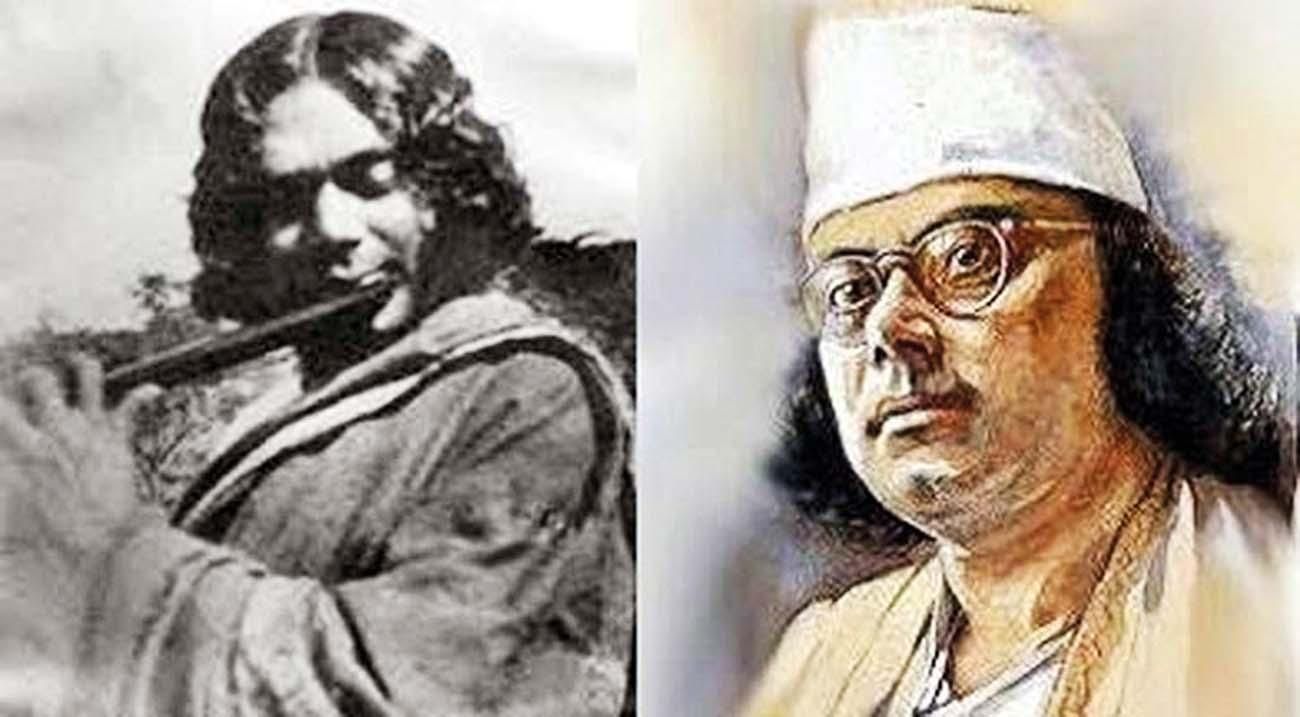Kazi Nazrul Islam is one of the greatest poets in Bengali literature. He is our national poet. He is known as a ‘rebel poet’. He is also known as a rebel poet. He was born in 1899 at Churulia in Asansol of West Bengal. On May 26, we ought to have celebrated the birth anniversary of a great poet and a revolutionary thinker but in West Bengal, where he was born, a natural calamity and a virus put an end to that.However, it is also true that Kazi Nazrul Islam, who is revered in Bangladesh as her national poet, is much less admired than Rabindranath in popular imagination. Is there a reason why we fail to remember his name when we discuss poetry that has shaped Bengali imagination? In the public sphere, why has Nazrul remained a slightly indistinct figure if we compare him to other stalwarts of Bangla poetry? The answer to that may lie not just in Nazrul’s life but in his radical poetics as well. Nazrul began writing as a young boy and was deeply attracted to the traditions of bardic and folk poetry of rural Bengal, especially around his village Churulia near present day Asansol. He began composing songs for leto singing groups from his early teens when he was exposed to Hindu myths and Puranic stories. The outbreak of World War I made him enlist in the British Army where he worked as a quartermaster and studied classical Persian poets like Hafiz and Rumi.The quarrel that broke out between these two groups of writers was to a large extent symptomatic of the division within the microcosm of Bengali intelligentsia. The radical Kallol writers were influenced by Marxist ideas and railed against the literary hegemony of Tagore. Their poetry focused attention on the downtrodden masses suffering under British colonial rule and against the increasing communal polarisation in Bengal’s politics and culture. Nazrul was one of the prominent contributors to this journal along with poets Premendra Mitra and Buddhadev Bose. It was in Karachi where he was posted that he came under the influence of the Bolshevik Revolution. And he began to unravel and understand his own role in the imperial army and to the ways in which a writer was shaped by his times. Within a few years, the Non-Cooperation movement launched by Gandhi would influence him deeply and awaken in him an awareness of the plight of millions of Indians whose poverty and misery would become an important part of his artistic consciousness and poetic oeuvre. The poems of Agnibina from this period are full of his newly awakened political consciousness. Similarly, the Khilafat Agitation made him realise the necessity and imperatives of a Hindu-Muslim brotherhood that would rise against the British. In 1922, he began to edit a weekly, Dhumketu (The Meteor) where he stated: ‘Dhumketu is not a journal devoted to communalism….Its primary motive is to remove the obstacles or misunderstandings that are strewn in the path of Hindu-Muslim unity.’ This investment in secular principles would remain a deeply significant strand in Nazrul’s writings and it was this, along with his commitments to Socialist ideas, that would bring him at loggerheads with his contemporaries, especially the writers of Shanibarer Chithi, a monthly literary magazine founded in 1929 and a fierce opponent to the radical politics of a younger group of writers who contributed to Kallol, a progressive literary journal.
Why We Remember (and Forget) the Rebel Poet Kazi Nazrul Islam
Jesica Sen
||
Post On > May 24 2023 ||

pKPMWXCakcJERtI
pKPMWXCakcJERtI
SIyvLDdN
Leave a reply
Baisakhi
2024-04-10 16:09:54
April
2024-03-30 18:08:52
summer flowers
2024-03-06 18:36:11
International Women's Day: Celebrating the Power, Progress, and Potential of Women
2024-03-02 19:27:15
medicine
2024-02-22 18:41:48
Saraswati
2024-02-17 17:01:19